





6 Regulations of Admission of antibiotics
Antibiotics – – it is possible to call the chemical compounds suppressing growth of bacteria the break in the field of medicine which allowed to save mankind from many diseases incurable earlier: tuberculosis, plague, syphilis and many others. The contribution of drugs to rescue of people from epidemics of dangerous infections is huge, however at careless use antibiotics are capable to cause to an organism serious damage. Negative action can be shown in the form of easing of immunity, disturbance of balance of microflora in intestines, failures in work of kidneys, a liver, a gall bladder, allergic reactions. To prevent emergence of possible complications during therapy, doctors recommend to follow Regulations of Admission of drugs.
1. Drink only on doctor's orders
The course of the antibiotics killing not only disease-producing, but also beneficial bacteria, is for an organism a stress, sometimes not smaller, than a disease. In this regard doctors appoint drugs strictly according to the indication − as a rule, it is a bacterial infection with which it is difficult for organism to cope independently. Most often are signs of this state:
- Permanent and long temperature increase (over 3 days);
- Purulent discharges;
- Yellow or pale green color of slime from nasal pass;
- Laboratory analyses (change of composition of blood towards increase in leukocytes, high to SOY);
- Recurrence of recently postponed disease.
It is not recommended to get antibiotics on the basis of own conclusions or councils of the people who do not have medical education. It is necessary to consider that antibiotics are effective only concerning bacterial infections, being useless at treatment of the diseases caused by viruses – and they often have similar symptomatology. Definition of the exact diagnosis requires medical inspection on the basis of which the specialist can appoint antibacterial drug.

2. Do not adjust a dosage
Sometimes patients adjust the drug dosage appointed by the doctor – for example, accept a double dose quicker to win against a disease, or reduce a dose that drug was "not harmful". Negative effects can be shown as follows: at increase in a dose – dysbacteriosis, an allergy, toxic defeats of an organism, at decrease – development of stability of bacteria to drug and, as a result, its uselessness. The similar effect arises in case of the termination of reception of an antibiotic before end of a course: the infection at the same time threatens to become slow, having caused complications from heart, kidneys and other internals.
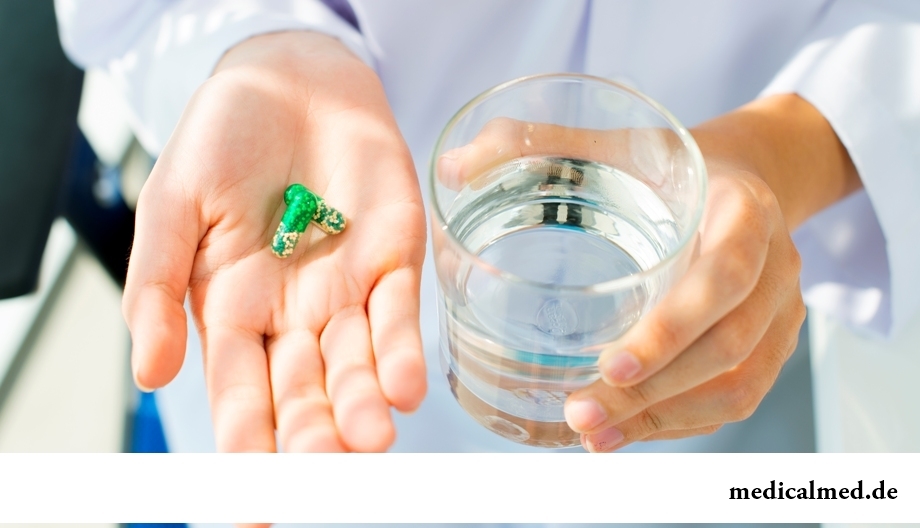
3. Fix all features of reception
Maintaining the diary of reception of an antibiotic – the measure allowing to prevent emergence of undesirable effects of therapy. During a course it is necessary to fix all data concerning administration of drugs on paper: time, a dosage, feeding habits, and also the nature of disease and the arisen complications (an allergy, disturbances of work of digestive tract, pain, etc.). On the basis of the stated data the doctor will be able to choose the safest scheme of therapy for the specific patient. Observance of this recommendation in treatment of children is especially desirable.

4. Strictly observe time and frequency rate of reception
Duration of administration of drugs, their dosage and frequency rate depending on a look, disease, age and the weight of the patient are established by the doctor. The usual term of treatment makes 5-7 days, in certain cases – 10-14 days. Specialists recommend to keep strictly frequency rate of reception for maintenance of constant concentration of active ingredient in blood. Therapy is, as a rule, tied not so much to food (if it does not make a reservation specially), how many to a temporary interval – reception three times a day means that it is necessary to drink drug every 8 hours. At the scheme of reception 2 times a day – every 12 hours, and it is worth remembering that having rummaged more in administration of drug than for 1 hour from recommended it is capable to reduce efficiency of treatment.
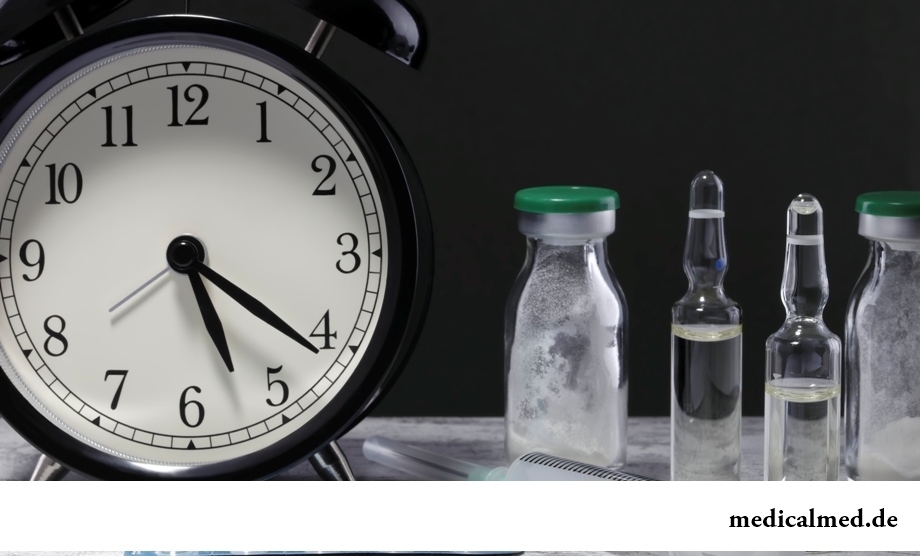
5. Correctly wash down drug
Practically in all chances it is recommended to wash down antibiotics with simple still water in quantity, sufficient for a free proglatyvaniye of a tablet. Extremely use for these purposes of the drugs of milk reducing efficiency of absorption, gassy and the tonics, juice (especially citrus) and also bringing active ingredients of tea and coffee out of an organism is not approved. The combination of antibiotics to alcohol (wine, beer, vodka, cognac and other) in any doses is forbidden because of high risk of intoxication of an organism. Also it is not recommended to drink antibiotics together with febrifugal, hypnotic drugs and antihistamines.

6. Keep to a diet
The diet during an antibioticotherapia is capable to exert a direct impact on efficiency of treatment. The main requirement – to limit amount of food with abundance of preservatives, fast food, smoked products, a pickles, marinades, and also sweets. For maintenance of normal intestinal microflora it is recommended to include in the menu products with the high content of cellulose – fresh vegetables, fruit, bran, bread of a rough grinding. In order to avoid the load of digestive tract caused by drug intake, irritating mucous a stomach, consults during treatment to limit reception of spicy food – pepper, horse-radish, mustard and others.
Special attention should be paid to the drinking mode – during a disease better to drink not less than 2 l of liquid, having given preference to warm clear water, and also fortifying drinks (to fruit juice, tea with a lemon, to dogrose broth, etc.), but not earlier than in an hour after administration of drug.
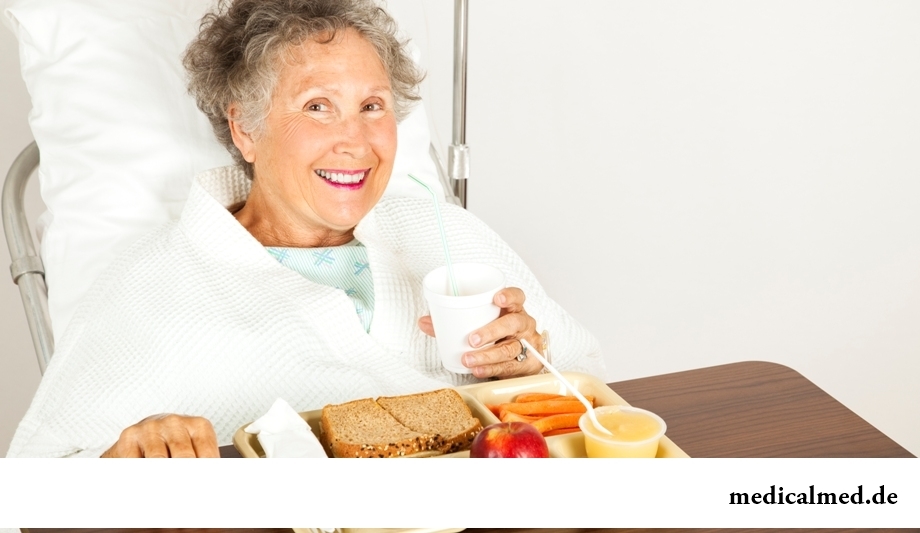
Stomatologists appeared relatively recently. In the 19th century to pull out painful teeth belonged to duties of the ordinary hairdresser.

Doctors claim that the people not so familiar with a dorsodynia occur among adult Russians very seldom. At the same time подавляющ...
Section: Articles about health
The phenomenon of improvement of a condition of the patients at administration of drugs who are not containing active agents, so-called effect of placebo is known long ago. At the end of the 18th century the American doctor Perkins began to treat people the "miracle" sticks made of a spl...
Section: Articles about health
Health and attractiveness - eternal values, pursuing which people often use the most unusual ingredients and technicians. Let's consider 11 most exotic and sometimes not most pleasant Spa procedures to which the person in a pursuit of beauty and youth agrees....
Section: Articles about health
Nightmares belong to the most unpleasant frustration. Statistically, they happen at 4% of adults, and almost at 70% of children and...
Section: Articles about health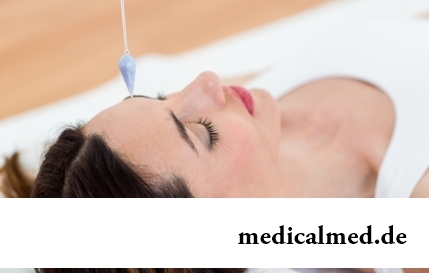
Practice of hypnotic impact on consciousness of the person contains about two millennia. During this time scientists managed to learn a lot of things about a phenomenon of hypnosis and learned to facilitate a condition of the patients having heavy illnesses with its help....
Section: Articles about health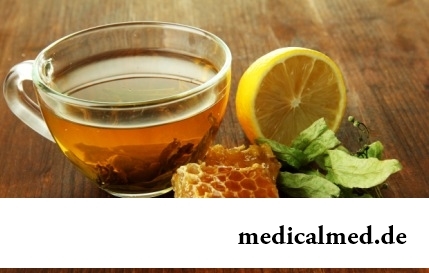
Cold – a state known to everyone which is followed by cold, cough, high temperature, a pharyngalgia. Often the first that we begin to do in hope again to become healthy – to accept medicines which are not always harmless whereas it is easy to facilitate displays of a disease by means of natural means. They not only softly eliminate disease symptoms, but also enrich the weakened organism with useful substances. We present you 8 drinks which are successfully used for...
Section: Articles about health
Cystitis, or inflammation of a mucous membrane of a bladder, this very widespread disease, which, owing to some persons...
Section: Articles about health
Is told about advantage of domestic animals for development of the child much. But many parents nevertheless do not hurry to bring pets as are afraid that they can do harm to health of children. What troubles can really trap kids and how to make with...
Section: Articles about health
Within several decades of our compatriots convinced that the use of butter nasty affects a condition of coronary vessels. As a result the reputation of a product was impaired thoroughly a little, and many almost ceased to include it in the diet, having given preference "to safer" to vegetable fats. Meanwhile, the last researches showed that harm of butter for health is strongly exaggerated. But the product has a number of unique properties, to...
Section: Articles about health
Aging — natural and inevitable process. Over time our skin loses elasticity, on it saggings, a face form теря are formed...
Section: Articles about health
Popular joke that there are no healthy people, and is nedoobsledovanny, most of us considers an honest truth, continually it is necessary to hear that all of us are sick hardly from a school bench. It is hard to say, whether so it actually because...
Section: Articles about health
Bulimia and anorexia, are heavy deviations of a feeding behavior, become a cause of death of patients much more often than all other nervous breakdowns combined. In 60% of cases two illnesses accompany each other: patients feel horror before danger of set of excess weight and try to refuse as often as possible food, but periodically suffer from attacks of sudden hunger and an uncontrollable overeating. Each patient with anorexia and bulimia needs the help qualified пс...
Section: Articles about health
One of the major chemical processes happening in a human body are oxidation reactions. They go with participation of fats...
Section: Articles about health
Summer in the heat. Many are going to spend vacation abroad. Travelers the tender seas, rest on beaches wait, for sightseeing, campaigns on natural and cultural reserves. But, unfortunately, on vacation also problems about health can wait for us...
Section: Articles about health
There is a lot of fans of beer in our country. Statistically, on each average Russian (including women and children) in a year about 60 liters of this drink are consumed. It is not a lot of, as in the Czech Republic or Germany, but figure all the same impressive. There is nothing to rejoice here: despite assurances of producers that beer is absolutely harmless, effects of its active consumption cannot be considered positive in any way. Here only part of that negative impact, which popular нап...
Section: Articles about health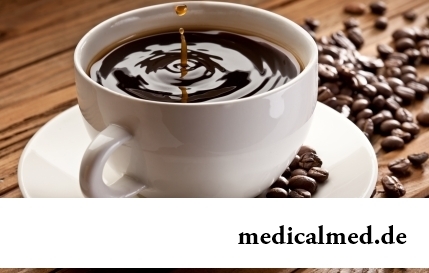
Coffee – favourite drink of many. For the last decades it more than once already declared very harmful, extremely useful and even...
Section: Articles about health
Condition of lips (their morbidity, outward) – one of indicators of health of the person. The peeling, dryness, pallor, and also cracks in corners of a mouth can be not only the cosmetic shortcoming which arose owing to physical damages and weather having sent away...
Section: Articles about health
Any person who faced a disease knows that treatment costs expensive. It belongs also to consultations of qualified specialists, and to the diagnostic procedures which are not included in the list of obligatory medical services. The question of cost of medicines is not so unambiguous: almost each drug is produced several producers at once, and the price of medicine can differ many times. In such situation there is a sense to understand in what differ from each other original environments...
Section: Articles about health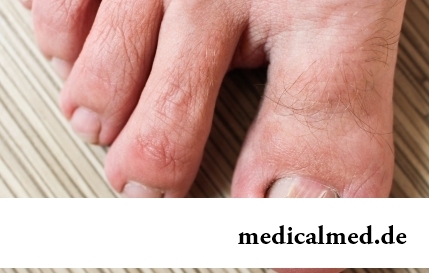
The word "onikhokriptoz" is unfamiliar to most of people, meanwhile quite so physicians call very widespread problem: growing...
Section: Articles about health
Visit of doctors – business not the most pleasant, and many people do not hurry to undergo necessary planned inspections. Such behavior is extremely thoughtless and improvident. Our health is necessary not only to us: wellbeing of darlings, children, grandsons and престар...
Section: Articles about health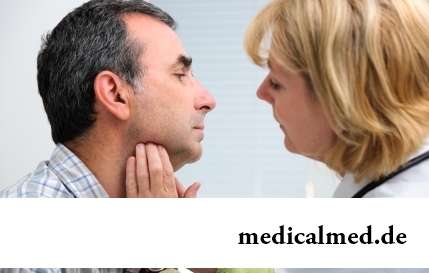
The endocrine system carries out extremely important role in a human body, practically all processes of life activity are regulated by it. Closed glands (hemadens) produce special biologically active agents – hormones which then get to a blood channel and are transferred to bodies addressees, or as they are called still, to target organs. Frustration of this mechanism are fraught with development of serious chronic pathologies....
Section: Articles about health
Not without reason doctors say that 90% of diseases begin or develop because of misoperation of intestines. Disturbance of its functions связ...
Section: Articles about health
Extracorporal fertilization – one of the most modern methods of controlling with infertility. So far he already helped a significant amount of married couples to become happy parents. Usually to the EKO procedure difficult and very expensive, resort in those...
Section: Articles about health
Among a set of the perfumery and cosmetic goods which are released today the special group is made by the means containing antibacterial components. Such types of gels, shampoos, soaps, creams, lotions and other products are positioned by manufacturers as a panacea from all diseases caused by pathogenic microorganisms. The unlimited and uncontrolled use of similar means becomes result of trustfulness of the buyers hypnotized by persuasive advertizing sometimes. Many spetsial...
Section: Articles about health
Bathing in broths of medical flowers and plants (phytobathtub) was eurysynusic since Cleopatra who is a good judge of everything...
Section: Articles about health
Smack in a mouth can arise in the natural way – as a result of lack of morning hygiene or reception of the corresponding food. However in certain cases its existence is a sign of certain pathologies, and allows to reveal an illness at an early stage. In we depend...
Section: Articles about health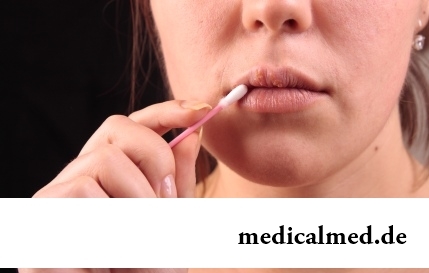
Herpes simplex of the first type (the infectious disease which is shown periodic bubble rashes on lips is called) – one of the most widespread illnesses. Statistically, only 5% of inhabitants of our planet are unreceptive to its activator, and the reasons of this feature are still not found out. Other people are virus carriers....
Section: Articles about health
